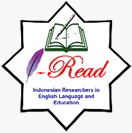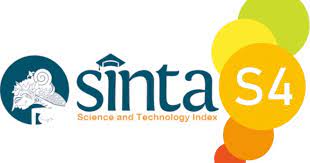The Impact Of Blogging On Efl Students’ Writing Development
DOI:
https://doi.org/10.22219/englie.v4i2.25509Keywords:
EFL, Descriptive Statistics, Tertiary Education, WeblogsAbstract
Weblogs, often known as "blogs" or "web logs," are currently among the most popular Internet apps. The current paper concerns the impact of blogging on the writing development of EFL students. This article also sought to understand the views of tertiary-level English language learners and examine the effects of blogging on academic writing The questionnaire survey was sent to five tertiary education universities in Iran. The data has been taken from 43 participants Six open-ended questionnaire items were measured. The method used was descriptive statistics and percentages gleaned from the data. The findings showed that students who utilized blogging in their academic writing saw a significant improvement in success scores, demonstrating that blogging helps students become better writers. Students also reported good views toward using blogs in their writing assignments, which, coupled with the results from the study, may suggest that students who have positive attitudes toward blogging are likely to develop into better writers.
Downloads
References
Cequena, M. (2013). Does blogging facilitate the development of students’ writing skills? Philippine ESL Journal, 10, 126-147.
Bakar, N. A., & Ismail, K. (2009). Using blogs to encourage ESL students to write constructively in English. ASEAN Journal of Teaching and Learning in Higher Education, 1(1), 45-57.
Glogoff, S. (2005). Instructional blogging: Promoting interactivity, student-centered learning, and peer input. Innovate: Journal of Online Education, 1(5).
Sun, Y. C. (2010). Extensive writing in foreign‐language classrooms: A blogging approach. Innovations in Education and Teaching International, 47(3), 327-339.
Richardson, W. (2006). Blogs, wikis, podcasts, and other powerful web tools for classrooms. Thousand Oaks, CA: Corwin Press.
Oravec, J.A. (2002). Bookmarking the world: Weblog applications in education. Journal of Adolescence & Adult Literacy, 45, 1081–3004.
Ward, J. M. (2004). Blog assisted language learning (BALL). Push button publishing for the pupils. TEFL Web Journal, 3(1), 1-16.
Downes, S. (2004). Educational blogging. Edu cause review, 39, 14-27.
Xie, Y., Ke, F., & Sharma, P. (2008). The effect of peer feedback for blogging on college students' reflective learning processes. The Internet and Higher Education, 11(1), 18-25.
Sollars, V. (2007). Writing experiences in a second/foreign language. Blogs: Web journals in language education, 15.
Smith, K. (2004). CCCC waves and ripples: weblogs in higher education. Retrieved on January, 16, 2006.
McGrail, E. & Davis, A. P. (2011). The influence of classroom blogging on elementary
student writing. Journal of research in Childhood Education, 25: 415-437, 2011.
Khampusaen, D. (2012). Collaborative blogging: A tool for teaching writing in EFL classroom. In International Conference on Education and Management Innovation, IPEDR (Vol. 30, pp. 161-165).
Karahan, F. (2007). Language attitudes of Turkish students towards the English language and its use in Turkish context. Çankaya University Journal of arts and sciences, 1(7), 73-87
Jones, G. (2006). The Skinny on Web 2.0. InformationWeek. Retrieved October 26, 2006.
Aljumah, F. H. (2012). Saudi learner perceptions and attitudes towards the use of blogs in teaching English writing course for EFL majors at Qassim University. English Language Teaching, 5(1), 100-116.
Ferdig, R. E., & Trammell, K. D. (2004). Content delivery in the blogosphere. The journal, 31(7), 12-20.
İstifçi, İ. (2011). Opinions of elementary level EFL learners on the use of weblogs. Turkish Online Journal of Distance Education, 12(1), 212-222.
Noytim, U. (2010). Weblogs enhancing EFL students’ English language learning. Procedia Social and Behavioral Sciences 2(2010) 1127-1132.
Churchill, D. (2009). Educational applications for web 2.0: using blogs to support teaching and learning. British Journal of educational technology, 40(1), 179-183.
Song. H. & Chan, M., 2008). Educational blogging: A Malaysian university student’s perception and experience. Proceeding Ascilite Melbourne 2008.
Downloads
Published
How to Cite
Issue
Section
License
Copyright (c) 2023 Zubair Hamad Muhi

This work is licensed under a Creative Commons Attribution-ShareAlike 4.0 International License.
Authors who publish with English Learning Innovation (englie) agree to the following terms:
- For all articles published in English Learning Innovation (englie), copyright is retained by the authors. Authors give permission to the publisher to announce the work with conditions. When the manuscript is accepted for publication, the authors agree to automatic transfer of the publishing right to the publisher.
- Authors retain copyright and grant the journal right of first publication with the work simultaneously licensed under a Creative Commons Attribution-ShareAlike 4.0 International License that allows others to share the work with an acknowledgement of the work's authorship and initial publication in this journal.
- Authors are able to enter into separate, additional contractual arrangements for the non-exclusive distribution of the journal's published version of the work (e.g., post it to an institutional repository or publish it in a book), with an acknowledgment of its initial publication in this journal.
- Authors are permitted and encouraged to post their work online (e.g., in institutional repositories or on their website) prior to and during the submission process, as it can lead to productive exchanges, as well as earlier and greater citation of published work (See The Effect of Open Access).
This work is licensed under a Creative Commons Attribution-ShareAlike 4.0 International License.
















1.png)












